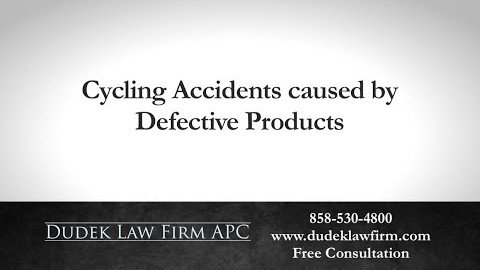What Rights Do I Have Under Admiralty Law?
San Diego Maritime Lawyer Provides Personalized Attention
 Our San Diego law firm has experience representing those injured while working or enjoying the sea on a wide range of vessels, from pleasure boats, cruise ships, helicopters and military vessels to commercial fishing vessels and container ships. When maritime workers and seamen are injured, they can typically file a lawsuit under the Jones Act. Lawsuits filed under the Jones Act are similar to standard personal injury claims. However, there are a few differences unique to maritime accidents that can affect what compensation victims may gain. Passengers of these vessels have different laws that govern their injuries.
Our San Diego law firm has experience representing those injured while working or enjoying the sea on a wide range of vessels, from pleasure boats, cruise ships, helicopters and military vessels to commercial fishing vessels and container ships. When maritime workers and seamen are injured, they can typically file a lawsuit under the Jones Act. Lawsuits filed under the Jones Act are similar to standard personal injury claims. However, there are a few differences unique to maritime accidents that can affect what compensation victims may gain. Passengers of these vessels have different laws that govern their injuries.
While the laws that govern injuries on the water are complex, maritime attorney Bonnici Law Group explains how the Jones Act and other laws work. He also explains what rights injured seamen and guests on boats have after ship accidents.
What are the Different Types of Maritime Claims and Compensation?
If you suffered injury or illness while working at sea, there are three different claims to keep track of:
- Maintenance and cure. This includes injuries on the job due to poor management, lack of safety procedures or any other cause regardless of who is at fault
- Negligence. If the employer or another party acted with negligence, you may also have grounds to file a Jones Act claim
- Unseaworthiness. If the vessel is not seaworthy because of defective equipment, improper maintenance or a poorly trained crew, other laws can affect your case
Attorney Joshua Bonnici can help you decide which claims are relevant to your case and seek the maximum compensation possible for your injuries. He has in-depth knowledge of many maritime laws, including:
- Jones Act seaman cases
- Longshore and Harbor Workers’ Compensation Act disputes
- Public Vessel Act cases
- Limitation of Liability defense
- Doctrine of unseaworthiness
Who Pays Maintenance and Cure?
Maintenance and cure is a crucial aspect of maritime law that dates back to the 1100s. It has two main components:
- Maintenance refers to the seaman’s basic living expenses – food, shelter and so on. It is the employer’s responsibility to cover these expenses until the seaman recovers.
- Cure refers to the seaman’s health. Under maintenance and cure, the employer must provide for the injured seaman’s medical bills, operations and therapy until he or she has recovered full health.
All ship owners/maritime employers have a duty to aid in the recovery of injured seamen by providing maintenance and cure. Furthermore, the employer cannot reduce this amount due to any negligence on the part of the worker. If your employer refuses or offers inadequate compensation, consult with an attorney who can argue on your behalf and hold your employer accountable for the dues owed to you.
Who Can File a Lawsuit Under the Jones Act?
The Jones Act is a specific section of the Merchant Marine Act of 1920 that defines the rights of seamen who are hurt while working at sea. The Jones Act gives seamen legal avenues for seeking compensation if they are injured due to negligent actions (or inactions) performed by the ship owner, the captain or any other member of the crew. Simply put, the Jones Act provides rights to injured seamen that international maritime law does not provide.
Workers must meet certain conditions for the law to consider them seamen under the Jones Act. Typically, to be eligible to file a lawsuit under the Jones Act, a worker must:
- Spend time working at sea – virtually any profession on a ship can qualify as seamen, including captains, sailors, cooks, commercial fishermen, deck hands, waiters and waitresses
- The ship on which the seaman works must be a vessel. Courts generally consider any object involved in the transport of cargo or passengers on navigable waters a vessel. For example, a cruise liner would be a vessel. However, a casino boat that is permanently at shore may not be, since the crewmembers do not regularly face dangers associated with work at sea.
Should I File a Jones Act Lawsuit?
While the living and medical expenses of maintenance and cure aims to provide coverage until workers reach full medical improvement, this compensation is often not enough. Seeking compensation by filing a lawsuit under the Jones Act can provide additional damages for future medical bills and other costs outside of maintenance and cure for injuries on the job caused by negligence.
If you require ongoing care for catastrophic injuries like traumatic brain injuries or paralysis, damages under the Jones Act can cover these costs. Injured seamen may receive compensation for the following:
- Past and future medical bills
- Lost wages
- Lost earning capacity
- Physical pain and suffering
- Mental anguish
It is advisable to discuss your situation with an experienced lawyer for maritime accidents before speaking with or giving a statement to the insurance company. Calculating the true value of these damages is a complex process, but it is your right to speak with an attorney who helps offshore workers first to learn if your employer or the insurance company is offering a fair deal. Jones Act attorney Josh Bonnici can help you make sure that you and your family receive compensation for the full extent of your injuries.
What is the Death on High Seas Act?
Congress passed the Death on High Seas Act in 1920, and it still applies today. In short, it allows family members to recover damages after a loved one dies at sea due to the ship owner’s negligence. This law applies to nautical deaths that occur at least three miles away from the shore. It also applies to those who die in airplane crashes over international waters. Only the deceased’s spouse, parent, child or dependent relative can file a lawsuit to claim damages following a wrongful death at sea.
Causes of Wrongful Deaths at Sea
If negligence played a role in your loved one’s death, you can most likely file a lawsuit under the Death on High Seas Act. Some of the most common examples of nautical negligence include:
- Unseaworthiness. A ship owner who takes an unseaworthy ship on the water could be liable for injuries or deaths that occur.
- Captain error. Did the captain steer the ship into dangerous waters or forget to perform a routine maintenance check? If so, he or she might be responsible for catastrophic accidents that result from poor decision-making.
- Government oversight. In some cases, a local, state or federal agency may be responsible for boating accidents and injuries. If the Coast Guard failed to warn about dangerous areas or guided a vessel into stormy weather, then they could owe damages in a wrongful death suit.
By handling each case himself, wrongful death attorney Joshua Bonnici is devoted to providing the essential support families in this situation need to help them begin taking the steps to recover from such devastating losses. He also limits the number of cases in active litigation to ten or fewer at one time, ensuring you receive the personalized attention your claim needs.
Why You Need an Experienced Attorney for a Jones Act Claim
Joshua has successfully litigated numerous injury cases, including trials and arguments before the United States Court of Appeals. He has also provided specialized services to clients in California, Nevada, Washington, Hawaii, Samoa, Guam, Peru and Croatia. His decades of experience practicing law gives him the knowledge needed to conduct an investigation of your case and explain in a straightforward manner what options are available to you.
If you or a loved one suffered a serious injury or was killed while on an ocean, lake or river, you are entitled to fair compensation to pay for the past and future expenses you will have related to this event. Reach out to us today at (619) 853-5101 to learn more about how our firm can help. Joshua offers free consultations and works on a contingency fee basis. He only receives payment if he is successful in obtaining a verdict or settlement in your favor. If not, you do not owe any attorney fees, meaning there are no financial risks in seeking the legal justice you and your family deserve.


























 1620 5th Avenue
1620 5th Avenue 1620 5th Avenue
1620 5th Avenue